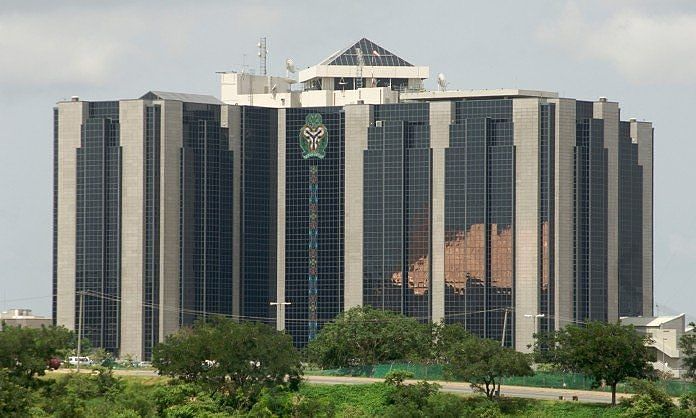Nigeria’s inflation rate slowed to 16.1 per cent in October 2025, marking a significant easing as the country’s food prices reached their lowest level in over eight years, according to data from the National Bureau of Statistics.
Food inflation, which constitutes the largest portion of the Consumer Price Index (CPI) basket, dropped sharply to 13.12 per cent from 16.87 per cent in September, driven by falling prices for staples such as maize, garri, beans, and various meats, the report showed.
The overall headline inflation rate also eased to 16.05 per cent, the lowest since March 2022, with food inflation continuing its downward trend due to factors such as improved food supply and currency stability.
Analysts had expected the trend. Lagos-based Cowry Assets Management projected that headline inflation would ease to 17.8 per cent, citing “continued naira stability, improved foreign exchange liquidity, and sustained food supply from the harvest season.”
Similarly, United Capital, in its Inflation Watch, forecast a decline to 16.30 per cent, noting that falling food prices and a stronger naira would offset some upward pressure from rising energy costs.
The decline in inflation comes after the Central Bank of Nigeria’s Monetary Policy Committee (MPC) cut the Monetary Policy Rate (MPR) by 50 basis points to 27 per cent in September, marking the first rate reduction in five years.
The move reflected a shift from one of the most aggressive tightening cycles in recent history and was broadly aligned with market expectations.
The next MPC meeting is scheduled for 24–25 November 2025, where policymakers are expected to review the impact of the current easing on inflation and economic recovery.
At state level, food inflation was highest in Ogun State at 20.58 per cent, Nasarawa at 19.96 per cent, and Ekiti at 19.70 per cent. Akwa Ibom, Katsina, and Yobe recorded the lowest food inflation for the period, at 3.98 per cent, 4.15 per cent, and 4.29 per cent respectively.
Nigeria’s headline inflation dropped to 16.05 per cent in October 2025, relative to the September 2025 headline inflation rate of 18.02 per cent.
The figure decreased by 1.96 percentage points compared to the September 2025 headline inflation rate.
Meanwhile, food inflation in October 2025 was 13.12 per cent on a year-on-year basis. This was 26.04 percentage points lower than the rate recorded in October 2024 (39.16 per cent).
The significant decline in the annual food inflation figure is technically due to the change in the base year. However, on a month-on-month basis, food inflation in October 2025 was -0.37 per cent, up by 1.21 percentage points compared to September 2025 (-1.57 per cent).
On a year-on-year basis, the headline inflation rate was 17.82 percentage points lower than the rate recorded in October 2024 (33.88 per cent).
This shows that the headline inflation rate (year-on-year) decreased in October 2025 compared to the same month in the preceding year (October 2024), albeit with a different base year (November 2009 = 100).
On a month-on-month basis, the headline inflation rate in October 2025 was 0.93 per cent, which was 0.21 percentage points higher than the rate recorded in September 2025 (0.72 per cent). This means that in October 2025, the rate of increase in the average price level was higher than in September 2025.
The percentage change in the average price index for the 12 months ending October 2025 over the average for the previous 12-month period was 22.02 per cent, showing a 10.24 percentage point decrease compared to 32.26 per cent recorded in October 2024.
On a year-on-year basis in October 2025, the urban inflation rate was 15.65 per cent, 20.73 percentage points lower than the 36.38 per cent recorded in October 2024. On a month-on-month basis, the urban inflation rate was 1.14 per cent in October 2025, up by 0.4 percentage points compared to September 2025 (0.74 per cent).
The corresponding twelve-month average urban inflation rate was 22.68 per cent in October 2025, 11.84 percentage points lower than the 34.52 per cent reported in October 2024.
The rural inflation rate in October 2025 was 15.86 per cent year-on-year, 15.73 percentage points lower than the 31.59 per cent recorded in October 2024. On a month-on-month basis, the rural inflation rate in October 2025 was 0.45 per cent, down by 0.22 percentage points compared to September 2025 (0.67 per cent).
The corresponding twelve-month average rural inflation rate in October 2025 was 20.81 per cent, 9.42 percentage points lower than the 30.24 per cent recorded in October 2024.
A number of African central banks are set to cut interest rates at their final policy meetings of the year as inflation eases—a move that could reinvigorate economic growth.
Major central banks in Egypt, Ghana, Angola, South Africa, Kenya, and Nigeria will announce policy decisions in the coming weeks, along with smaller economies such as Lesotho, Namibia, and Botswana.
Commenting on the latest inflation figures, the Chief Executive of the Centre for the Promotion of Private Enterprise (CPPE), Dr Muda Yusuf, described the sharp moderation in inflation as a significant win for macroeconomic stability.
He attributed the decline to several factors, including exchange rate stability, which “helped ease imported inflation, particularly in sectors dependent on imported raw materials, inputs, and energy.”
The overall headline inflation rate inched down to 16.05 per cent, the lowest since March 2022, aided by improved food supply and a stable naira. On a month-on-month basis, the CPI rose 0.9 per cent in October compared to 0.7 per cent in September. Analysts such as Lagos-based Cowry Assets Management had predicted this trend, citing “continued naira stability, improved foreign exchange liquidity, and sustained food supply from the harvest season.” United Capital also forecast a headline inflation decline to around 16.3 per cent, noting that lower food prices and a stronger naira would offset energy price pressures.
The recent easing follows the Central Bank of Nigeria’s MPC decision to cut the MPR by 50 basis points to 27 per cent in September 2025, the first reduction after five years of tightening. “This policy shift was broadly aligned with market expectations and signals growing confidence in the ongoing reform initiatives,” Dr Yusuf noted.
However, despite this progress, Dr Yusuf cautioned that “the full welfare benefits are yet to be sufficiently felt by households due to persistent structural constraints, especially in food supply, transportation, energy, housing, and essential services.”
He stressed: “To ensure that disinflation translates into real cost-of-living relief, Nigeria must undertake deliberate and sustained reforms across critical sectors.” He called for “coordinated monetary, fiscal, and structural policies,” highlighting the importance of strong cooperation between the Central Bank, the Ministry of Finance, the Ministry of Agriculture, the Ministry of Transport, Customs, and trade agencies to bolster inflation management.
On regional disparities, food inflation was highest in Ogun State at 20.58 per cent and Nasarawa at 19.96 per cent, while Akwa Ibom, Katsina, and Yobe recorded the lowest at under five per cent.
Analysts at Cordros Capital expect headline inflation to continue moderating on an annual basis, with favourable base effects remaining a key driver of the disinflation trend. However, they note in an emailed report that consumer prices may edge higher in November, reflecting stronger seasonal demand.
“In particular, increased stockpiling by households and retailers ahead of the December festive period is likely to lift demand for food and other consumer goods, pushing up prices in key categories such as food, transport, and hospitality. This seasonal price pressure is expected to result in a modest increase in the monthly inflation rate, even as the annual rate continues to ease. Accordingly, we forecast headline inflation to decline to 14.24 per cent year-on-year in November, with the month-on-month print rising to 1.05 per cent from 0.93 per cent in October.”
Meanwhile, several African central banks, including Nigeria’s, are considering interest rate cuts as inflation eases across the continent. Bloomberg reports that central banks in Egypt, Ghana, Angola, South Africa, Kenya, and others are expected to announce policy decisions soon, aiming to support renewed economic growth.
Overall, while Nigeria’s October inflation data signals a welcome easing, experts emphasise that translating this into tangible benefits for citizens requires sustained reform and policy coordination across sectors critical to everyday living costs.
Similarly, a restaurant owner in Ojo Local Government Area of Lagos, Ifeoma Ajuwon, told LEADERSHIP that the prices of some food items in the market have reduced. She said the variety of rice she had been buying over the past six months had fallen from N1,600 a cup to N1,200. She said a cup of honey beans had fallen from N2,200 over the past six months to N1,200. Ajuwon added that the price of garri had also fallen.
She, however, said such relief had not been felt in the prices of yam and tomatoes.
Also, a trader in Iyana Ipaja Market, Esther John, told this medium that the price of a bag of rice had fallen from N82,000 six months ago to between N68,000 and N70,000 currently. She agreed that the price of beans had also fallen by almost N1,000 a cup over the past six months. She expressed excitement that with the drop in price, her rice trading business had started attracting more customers. John added that she hopes prices will stay down as the festive season approaches.
Similarly, a housewife in Port Harcourt, Janet Dressman, agreed that the prices of some agricultural commodities had fallen compared to a few months ago. She cautioned, however, that the perception of a general fall in food prices had not been felt with the prices of yams, tomatoes, and beef. She said the price of fish had been fairly stable, while the price of dairy products had slightly fallen.
Reacting, a development economist at Adeleke University, Professor Tayo Bello, said Nigeria could do far better in the production of agricultural products if the government ensured security, particularly in known food-producing states, especially in the Middle Belt and northern Nigeria.
For his part, a financial economist at Nnamdi Azikiwe University, Dr Felix Echekoba, said the current relief in agricultural products was a result of the harvest season.
He also expressed optimism that going into the New Year, the prices of food items such as yams would also fall, as that would coincide with the yam harvest season.
Meanwhile, organised labour has cautioned the general public against becoming too excited over the reported drop in inflation, saying it is not yet uhuru until the average Nigerian has three square meals on the table.
There have been mixed reactions, as labour leaders noted that the reported drop in inflation—based on newspaper reports—cannot yet be treated with seriousness.
In a chat with LEADERSHIP, the General Secretary of the Iron and Steel Senior Staff Association of Nigeria (ISSSAN), Comrade John Odigie, stressed: “Until Nigerians no longer go to bed on an empty stomach, I will not believe that there is a drop in inflation.”
Similarly, the president of the National Union of Food, Beverage and Tobacco Employees (NUFBTE), Comrade Ibrahim Garba, noted that in a situation where there is rampant mismanagement, one will have to watch and wait to know if the reported drop is actually true.
According to him, “Until the regime of President Bola Ahmed Tinubu has more dedicated and patriotic hands to drive the economy in the right direction, the news of a drop in inflation will be taken with a pinch of salt.”





